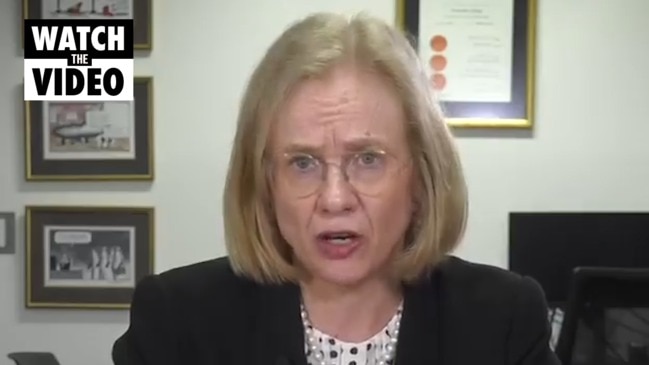Ahpra receives complaints on medical professionals’ social media behaviour
Multiple complaints about healthcare professionals’ actions online have forced the regulatory board to issue serious warnings.

QLD Coronavirus News
Don't miss out on the headlines from QLD Coronavirus News. Followed categories will be added to My News.
Doctors and healthcare professionals have been warned not to discuss COVID-19 policies on social media or other public online forums following complaints to regulators.
The Australian Health Practitioner Regulation Agency (Ahpra) and National Boards said in a statement: “Ahpra and the National Boards appreciate the importance of a vigorous national debate on public policy during the COVID-19 pandemic.
“However we remind all registered health practitioners that their obligation to comply with their profession’s code of conduct, applies in all settings – including online.”
Doctors expose sick state of Qld’s public health system
Surgery cuts ‘normal’ in swamped health system
‘Every part of the body’: CHO’s grim COVID video
The board said it had received concerns about health practitioners engaged in online discussion on public and “semi-private” forums.
“We have received concerns about the conduct of some health practitioners engaged in online discussion, including in semi-private forums. Community trust in registered health practitioners is essential,” the board said.
“Whether an online activity can be viewed by the public or is limited to a specific group of people, health practitioners have a responsibility to maintain professional and ethical standards, as in all professional circumstances,
“In using social media, health practitioners should be aware of their obligations under the National Law and their Board’s Code of conduct.”
Ahpra has reminded registered health practitioners of complying to the expected standards, including confidentiality and privacy obligations, professional obligations as defined in board’s code of conduct and maintaining professional boundaries.
Ahpra also stressed communicating professionally and respectfully with or about patients, colleagues and employers, and not to present information that is false, misleading or deceptive, including only advertising claims that are supported by acceptable evidence.

